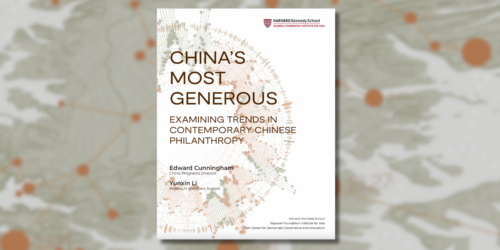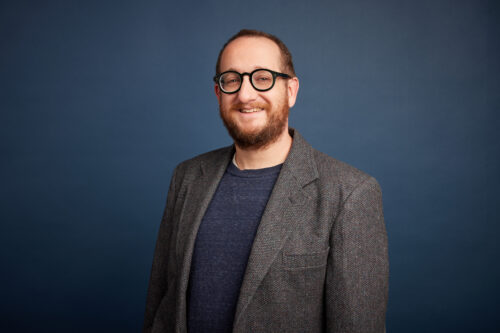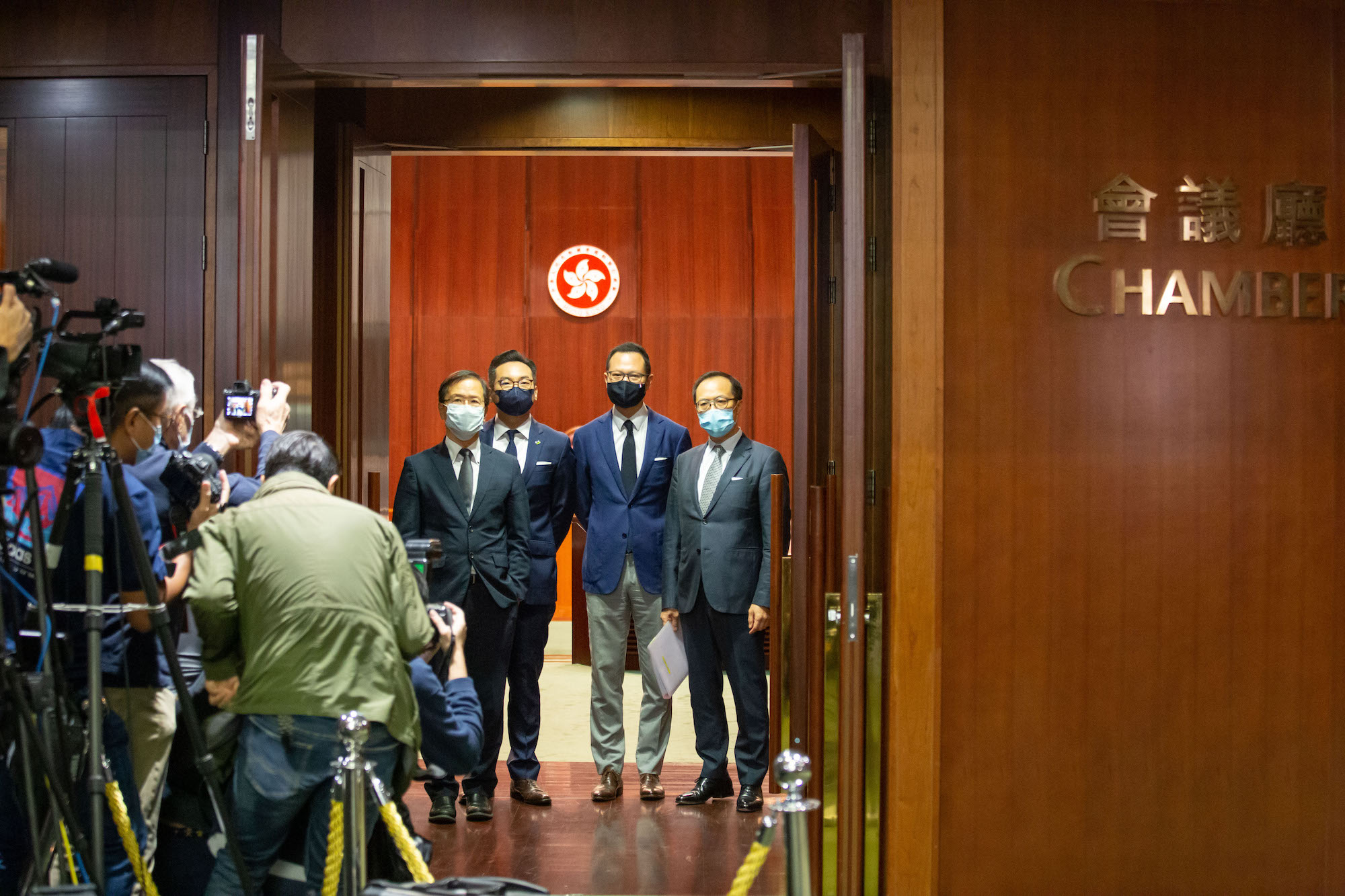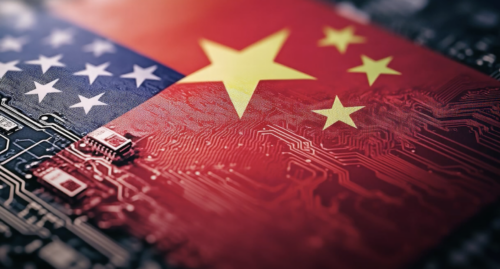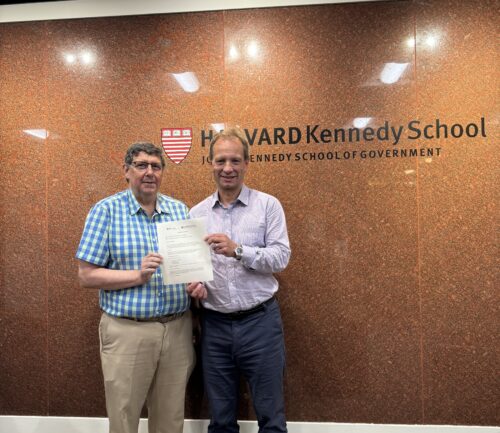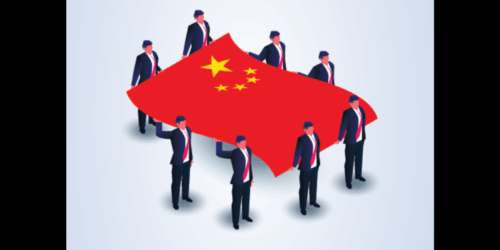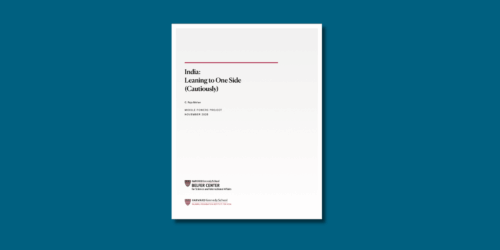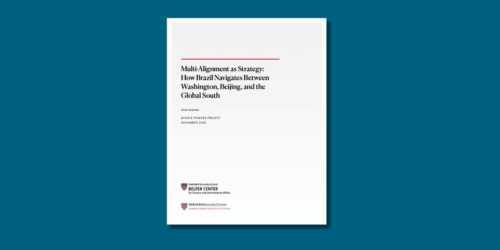It’s become a familiar sight at Hong Kong International Airport: entire families saying goodbye to the former British colony, preparing for new lives in North America, Europe, or Australia. “You see these scenes at the airport these days, whenever there’s a flight to London. There are tons of families. When one family is leaving, three families show up and a pastor comes to pray over them,” remarks Ash Center Senior Research Fellow Dennis Kwok. He would know; earlier this year, the lawyer and former pro-democracy lawmaker joined the growing exodus of Hong Kongers moving abroad as Beijing continues to tighten its political grip on the city.
Kwok, a former member of the Hong Kong Legislative Council (LegCo), left Hong Kong after he was disqualified from running for re-election in November 2020. Acting under an opaque national security law, authorities in Beijing greenlit efforts by Hong Kong officials to ban Kwok and three other colleagues from defending their parliamentary seats, claiming they were endangering Hong Kong’s national security. Hong Kong Chief Executive Carrie Lam attempted to justify Kwok’s ban by claiming, “we could not allow members of a Legislative Council who have been judged in accordance with the law that they could not fulfill the requirement and the prerequisite for serving on the Legislative Council.”
Though Kwok was effectively forced out of politics, he has no regrets about putting his law career on hold to serve on the LegCo. “I belong to the generation who really wanted to make one country, two systems work,” he explains. So, when the opportunity to serve the public arose, “I owed it to the Hong Kong people. Looking back, it was still very much the best decision I could have made.”
Kwok came of age politically in the days following the 1997 British handover, which re-established Hong Kong as a separate administrative region of China with its own political and economic system. This post-handover arrangement became known as “one country, two systems.” For Kwok, however, one country, two systems was more than a governing framework. It was a system of values. “It represented democracy, freedom, and the rule of law,” he affirms. “My generation of Hong Kong people regard Hong Kong [not mainland China] as their true home.”
During his LegCo tenure, Kwok was known as a staunch defender of Hong Kong’s judicial independence. A lawyer by training, he entered the LegCo as a member of the legal functional constituency, which in essence represents the interests of the Hong Kong legal community in the legislative body. There, he pushed back on attempts to ease the extradition process between Hong Kong and mainland China, which became one of the flashpoints of the massive 2019 pro-democracy protests in Hong Kong.
That same year, a grisly murder in Taipei sparked the introduction of a bill in the LegCo to facilitate the transfer of fugitives between Hong Kong, mainland China, and Taiwan. This quickly triggered concerns about the further erosion of legal and political rights in Hong Kong. “Extradition law is a rather arcane legal issue. Here in the U.S., you’d never have someone raising objections to the routine transfer of a criminal suspect between Massachusetts and New York,” explains Kwok. “But one of the reasons why we have one country, two systems is because the people in Hong Kong do not trust the system in China. We simply don’t have confidence in the Chinese legal system.”
Ultimately, the debate over the extradition law spiraled into a series of mass demonstrations that riveted the world. Hundreds of thousands of Hong Kongers took to the streets to voice their opposition to the law as well as the escalating police tactics to control the protests. “The Hong Kong people came out to fend for their freedoms, and our political leaders were, in many ways, blind to this growing current of opposition,” says Kwok. “The government refused to back down because, as an authoritarian regime, they cannot back down in the face of the people’s voice. With a democratic government, you’d hear people saying, ‘Let’s go back to the drawing board.’ But they refused to do that.”
Beijing’s further crackdown on political rights in Hong Kong has left Kwok pessimistic about the fate of the city he has called home for most of his life. “I think Hong Kong has fallen, and one country, two systems doesn’t exist anymore.” For Kwok, the effective abrogation of the post-handover legal and political framework holds important lessons for the international community. “When China says they want to negotiate a climate change deal or an agreement about the status of Taiwan, can they be trusted to honor it when they have walked back on an international treaty like the Sino-British Joint Declaration?” he asks. “Hong Kong is the canary in the coal mine.”
